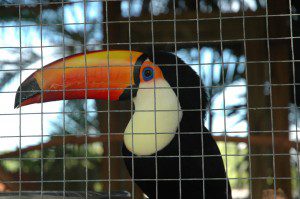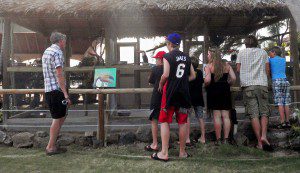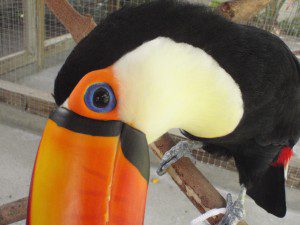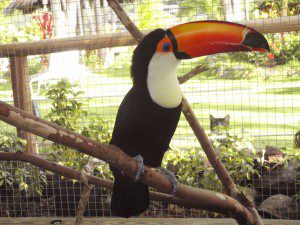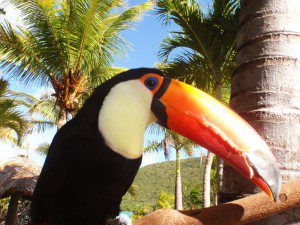“The problem with making assumptions is that we believe they are the truth.” – Don Miguel Ruiz, The Four Agreements
As animal lovers, we often see ourselves as the voice for those creatures without a voice. With the abundance of both domesticated and exotic animals being kept in captivity today, there is unfortunately just as many bad owners out there as there are people who are doing their very best to provide a loving, suitable home for the animals in their care. When you empathize so deeply with animals, it is heart wrenching to hear stories and see images of violence, neglect, and improper keeping of innocent creatures who have no choice in the matter. So we make it our responsibility to defend the animals, putting ourselves in passionate opposition to those unfit to care.
We are often quick to judge. Someone on a bird forum asks if they can feed their parrot marshmallows or coffee and we immediately feel outraged that they would even think to do so and that they should not even own a bird in the first place. We watch a You Tube video with a bird who is a feather-plucker, playing near a cage we know is too small for that particular bird, so we think – That’s why he is plucking! You are a cruel, incompetent owner! But are our initial suspicions always correct?
One of the challenges of housing our Three-Cans outside in a public space is that I am forced to deal with negative judgments quite often. Many people see a bird in a cage and they immediately jump to the conclusion that the bird is living a horrific life, is immensely depressed, and should be released to fly free. I can certainly understand where they are coming from – the appearance of cage wire does not evoke positive emotions and the very essence of a bird is its ability to fly. But what I do not appreciate are peoples’ uninformed, blanket judgments who do not seek out the facts before they condemn.
Honestly, it is very easy to feel indignant. What with all of the time, energy, and emotion I devote to Paco, Paz, and Pepe, day in and day out, I find myself incensed, thinking, How dare this person accuse me of mistreating my toucans! What makes them think they know what is best for them, better than me?
I am of the belief that if people know anything about birds, they should be able to easily see that our toucans are in a decent, not to mention well-maintained, situation – their cages are spacious and always clean, and they have food and enrichment in plain view. I am often in the cages interacting with them in a solely positive way. But, often all it takes is for someone to walk up during a moment of toucan relaxation and just like that – they make the assumption that the birds are bored and depressed, rather than keeping an open mind that perhaps like any creature, toucans spend time in action and time in repose.
I spend a good portion of time essentially defending myself and the captive situation I have my toucans in. I actually appreciate the opportunity to turn the perceptions around, rather than having people leave, passive-aggressively muttering criticisms to each other instead of asking me for clarification. I admit that snippety questions can make me stiffen with irritation, but I do my best to quell my urge to argue and simply offer up the true facts of the situation without defensiveness. I am happy that people always leave our conversations with positive emotions replacing their initial criticisms. But I will say that I am not here to do battle and I wish people were more charitable with their use of the phrase, “innocent, until proven guilty.”
In an effort to not allow the random stone-throwers to make an enemy of the public in my heart, I try to receive things in two ways. For one, I strive to not take things personally. This is a tough one, but truly applicable to everything. For whatever reason a person is behaving argumentatively to me, it is not about me. If I keep that in mind, I can share the wonderful experience of what we are doing for our adopted toucans, without feeling like I need to defend myself. I also try and keep in mind that we are on the same team. We both love animals. We both want the best for them and feel responsible for the actions of our fellow humans. I work to feel grateful that they have an immediate love and respect for my Three-Cans, rather than disregarding them or devaluing their existence.
When I step back, I can see how I, too, am guilty of making snap judgments of animal situations and the care being provided by others. My current experience is now teaching me the value in keeping an open mind and asking questions before I make my verdict.
So the main thing I would like to ask of my fellow animal lovers out there – the moral of this post, if you will – is to join me in being cautious with your judgments. I am by no means suggesting we turn a blind eye to situations we perceive as negative for animals. If we see genuine signs of endangering mistreatment, it is absolutely unacceptable and our responsibility to do something about it. But I believe in the importance of the Seneca quote (this post’s title) – “If you judge, investigate.” I think we owe it to each other to give the benefit of the doubt and wait until we have the full information before making a harsh judgment, obviously excluding cases of blatant abuse and/or neglect. No matter how much we think we know, there is always more to learn and two sides to every story. Before alienating others, let us approach with an understanding of our shared passion for the non-human with an openness and desire to grow together.

